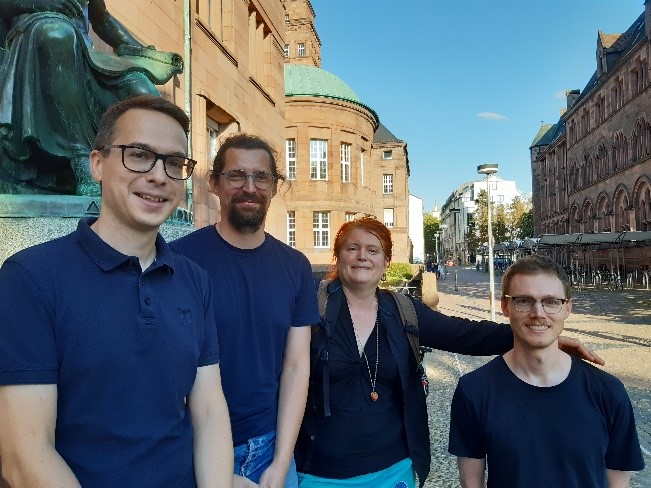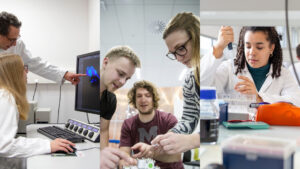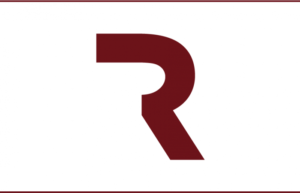After the successful five EPICamps that took place between October 2021 and April 2022 in the context of EPICUR Research, the EPICradles – another step on the EPICUR Pathway to Research – launched in September 2022. EPICradles are unique opportunities for Early Career Researchers (ECRs) to receive funding and institutional support while coming together in groups and developing interdisciplinary and/or transdisciplinary, challenge-based projects that are beneficial to society in addressing broad themes (so-called EPIChallenges) such as Sustainability, Mobility, Migration or Identity. The short-term and hybrid mobility format supports and enhances European collaboration of ECRs by granting fellowships. In this very first round of EPICradles, fellowships were granted by the University of Freiburg and the format ran for approximately three months with two physical stays, during which ECRs were able to work together.
The first round of EPICradles starts off
Four excellent ECR groups responded to the Call for Participation in April 2022 and were accepted by the selection committee for the ECR fellowship due to the high quality of their research proposals. Interdisciplinary within the EPICradle groups was reflected by the participants’ primary field of research ranging from Sustainability & Agriculture to Economics as well as their University affiliation. Applicants from the Karlsruhe Institute of Technology (Germany), the University of Strasbourg (France), the Adam Mickiewicz University (Poland), the Aristotle University of Thessaloniki (Greece), the University of Natural Resources and Life Sciences in Vienna (Austria), the University of Haute-Alsace (France) and the University of Freiburg (Germany) were accepted to participate in the pilot phase of this project. The selected groups brought together researchers from at least three different EPICUR countries. They addressed the EPIChallenges in meaningful ways, and connected a broad range of different career stages.
Hybrid Format combine virtual collaboration phase en physical stays
The first virtual collaboration phase started in September 2022, followed by an “Exploration and Team Building phase” in the form of physical stays. From October to December 2022, the groups were welcomed at least once by the University of Freiburg (UFR) and its research facilities. Other partner universities such as the University of Natural Resources and Life Sciences, Vienna (BOKU) and the The Aristotle University of Thessaloniki (AUTh) also played host to the groups. During the span of their research stays, they were able to connect in person, share their individual research ideas and methods and develop shared projects for future collaborative research. Despite the challenges of their individual disciplinary backgrounds, they found common ground within those sessions. EPICradle participants were delighted to see how well the previously virtual connections manifested in person. In addition, groups invited experts from in- and outside of academia from the University of Warsaw, the Artistotle University of Thessaloniki, as well as the City of Freiburg.
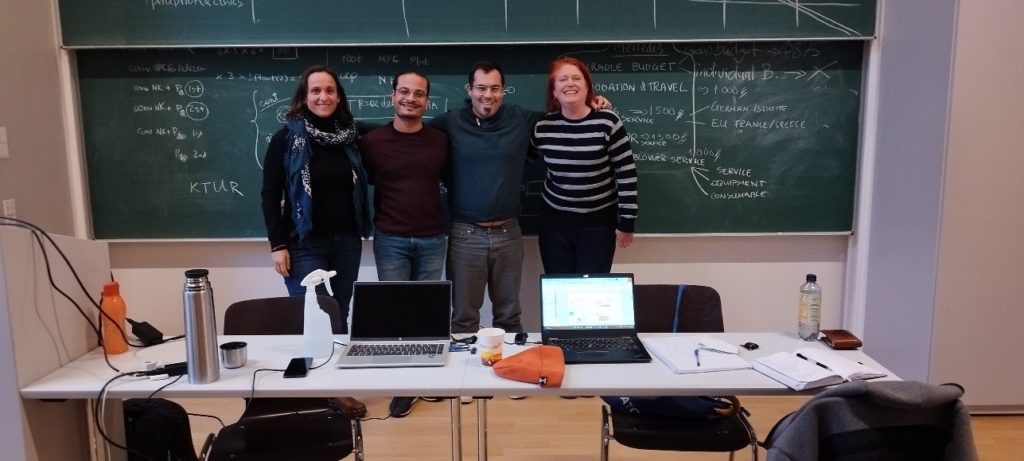
Four Research groups, four exciting projects
The group projects range from projects on co-constructing sustainable farm practices against pest infestation (“Co-Con”), an interdisciplinary approach for identifying promising solutions on the emerging challenge of phosphorus recycling (“Epic-P”), sustainable regional production and consumption in Europe (“Sustainable Regional Production”) and metaphorizing the experience of home and migration for more inclusive local policies (“De-Heimatization”).

Closing Event – Challenges and Feedback
On December 09, 2022, the first round of EPICradles was wrapped up in an online closing event, providing the opportunity for the EPICradle participants to share their interdisciplinary journeys, their hopes for future collaborations within the EPICUR Pathway to Research, as well as to reflect upon their experiences with the format, challenges and lessons learned. ECRs from the “Co-Con” group pointed out, that the EPICradles were a very positive experience over all, despite some administrative issues, which should be improved for future EPICradle projects. With the funding, the group was able to meet at a conference in Thessaloniki, which turned out very beneficial for the group. Other ECRs said that the interdisciplinary challenges, which at first made it hard to coordinate and cooperate within the group, still opened interesting new perspectives. Yet, considering different methods and approaches to the challenges turned out to be a fruitful experience overall. Administrative and organisational hurdles, e.g. a financial structure which reduced flexibility in purchasing equipment in time made for a “bumpy start”. However, the good atmosphere within the group and the in-person meetings made up for these minor issues and enhanced the online collaboration phase. Other groups were very pleased with the EPICradle experience and are now motivated to apply for the future EPIClusterformat. Members of the “EPIC-P” group added, that this kind of interdisciplinary work context was a new, but interesting and productive experience, which motivated the team to transform their output into an archive for the public.
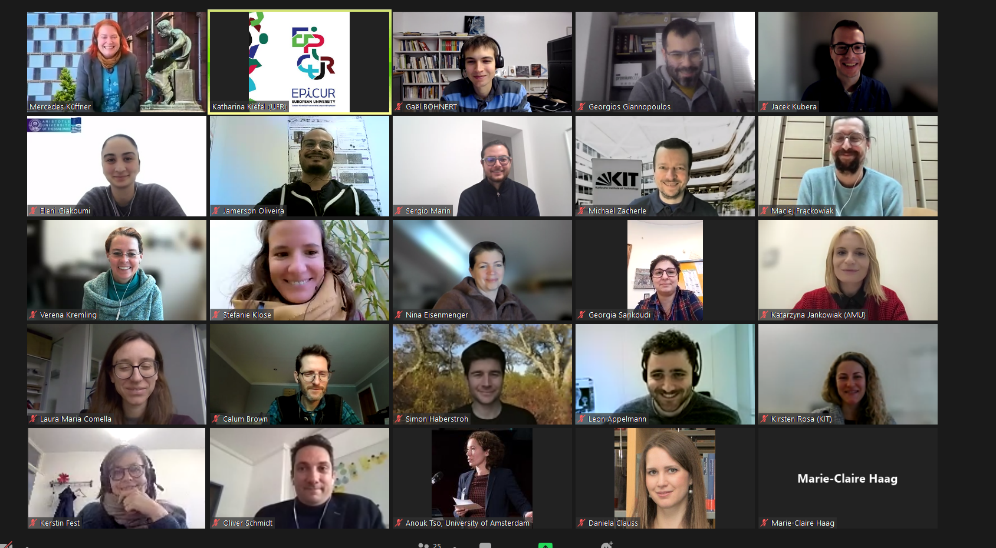
Next step: EPIClusters
EPICUR Research is very pleased to have been able to support and assist ECRs within the EPICUR Alliance and to elevate European research collaboration and networking. The next step on the EPICUR Pathway to Research is the EPICluster Mobility Programme which is a test run coordinated by the University of Strasbourg. The Call for Proposals is open now! For more info, click here.

